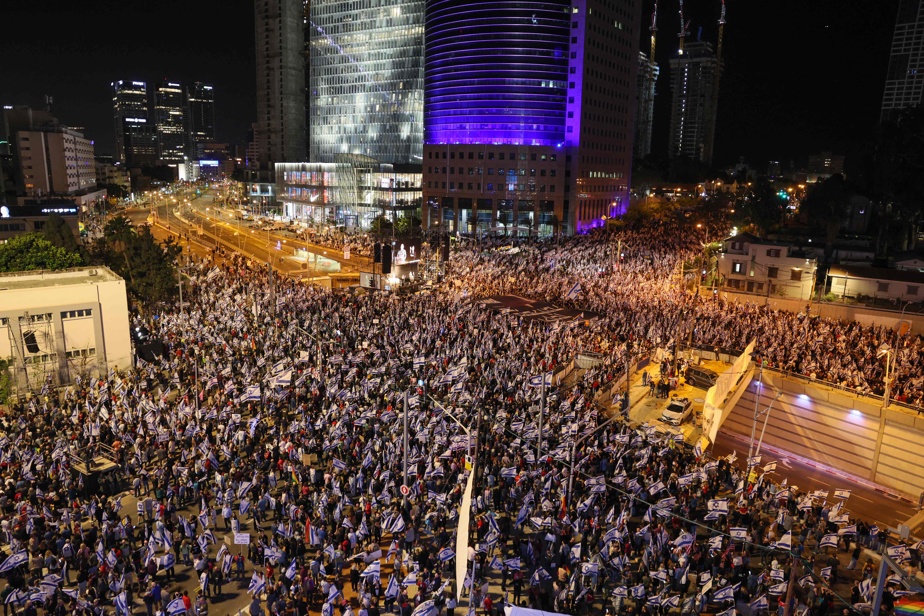(Tel-Aviv) Tens of thousands of Israelis again took to the streets of Tel Aviv on Saturday evening to protest against the justice reform wanted by the government of Binyamin Netanyahu, considered undemocratic by its detractors.
This is the 16th consecutive week of mobilization, in Tel Aviv, and other cities across the country, ahead of a week that will see Israel commemorate Remembrance Day for its slain soldiers and its victims of terrorism. , and celebrate its 75th anniversary.
In Tel Aviv, some protesters held up signs that read, “We will defend what you fell for,” in reference to fallen soldiers.
The demonstration in Tel Aviv, the largest gathering in the country, brought together tens of thousands of participants, according to an AFP journalist on the spot.
Smaller protests took place in other cities across the country, including Haifa.
The police do not provide official figures on the number of participants in the demonstrations.
Saturday’s protests come ahead of a week that will see large gatherings of opponents and supporters of reform, alongside commemorations of Iom Hazikaron (Remembrance Day) on Tuesday, followed by celebrations of 75 years since its founding on Iom Haatzmaut ( Independence Day), Wednesday.
Sunday, a large demonstration of opponents of the reform is planned in Tel Aviv during the speech of Mr. Netanyahu on the occasion of the general assembly of the Jewish Federations of North America (Jewish Federations of North America).
Another large rally of opponents of the reform has been announced for Tuesday evening in Tel Aviv.
Supporters of the reform meanwhile planned to rally on Thursday evening.
Since the announcement of the reform project in early January, tens of thousands of Israelis have gathered every week to denounce the text and shout down the government formed in December by Mr. Netanyahu.
The latter announced on March 27 a legislative “pause” to give a “chance […] to dialogue”, after an intensification of the protest, the start of a general strike and the appearance of tensions within the majority, but the mobilization against the reform remains strong.
For the government, the text aims, among other things, to rebalance powers by reducing the prerogatives of the Supreme Court, which the executive considers politicized, for the benefit of Parliament.
Critics of the reform believe, on the contrary, that it risks opening the way to an illiberal or authoritarian drift.

